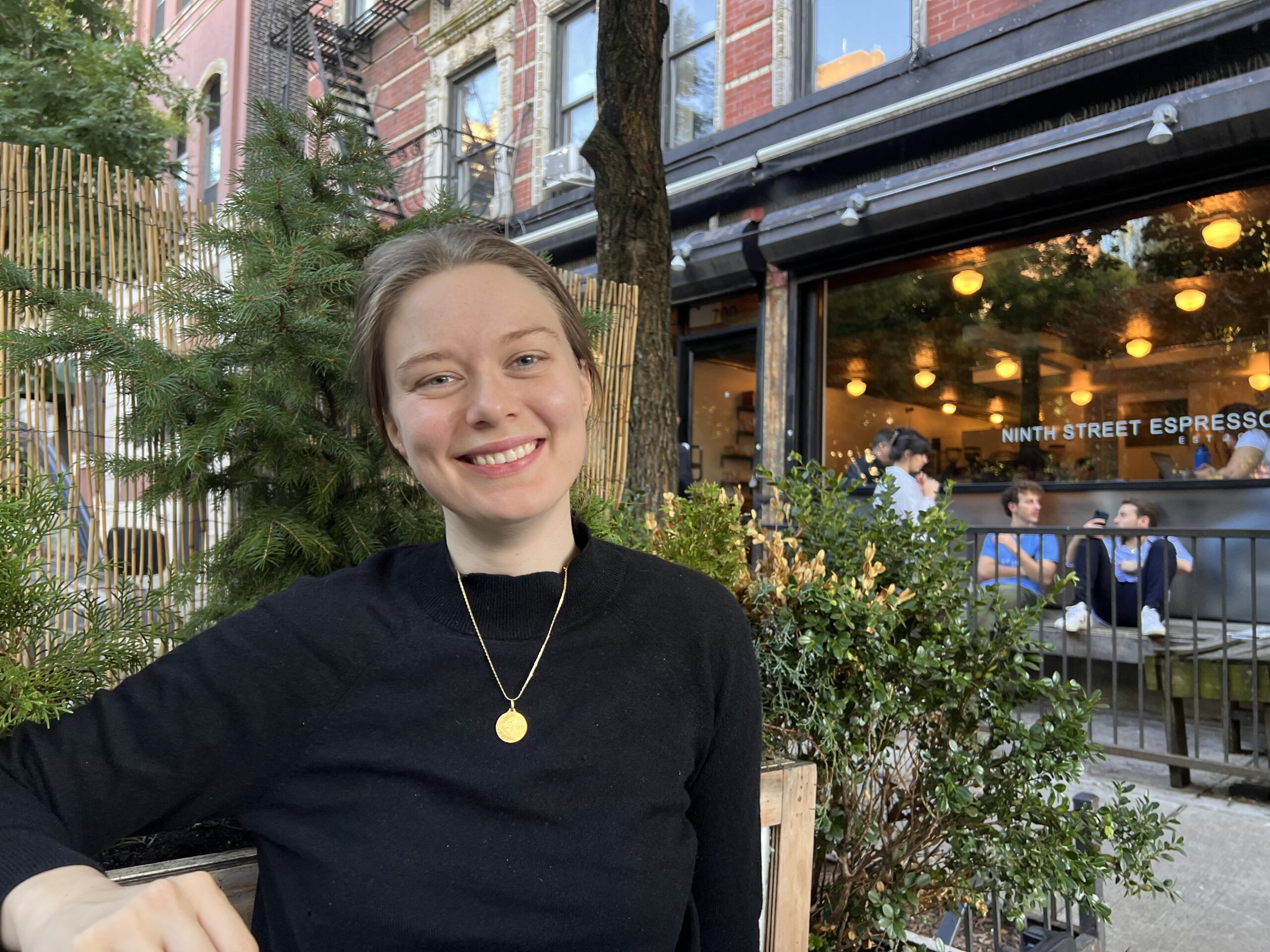
It’s a breezy Wednesday afternoon outside of Ninth Street Espresso, a cafe in the heart of Alphabet City in New York’s Lower East Side. We’re outside of 30-year-old Emi Nietfeld’s favorite cafe, where she wrote most of her recent memoir, “Acceptance.”
Since the book’s release in August, Nietfeld’s days have been filled with publicity, but the core of her routine includes turning the internet off in the morning, eating breakfast with her husband, Byron, working out, and going out to events. And as charming as she makes these days sound, they haven’t always been easy.
As a young girl Nietfeld spent time in a treatment center, an eating disorder facility, and foster care. She grew up with a father who later came out as transgender, and her mother had a hoarding disorder so severe that it left her house cluttered, filthy, and unbearable to live in. Nietfeld also struggled with cutting, an eating disorder, and attempted suicide, and had been raped while on a trip to Europe. She was told that shooting for an Ivy League was beyond her capabilities.
With seven million young Americans suffering from mental health illnesses, Nietfeld’s book “Acceptance” contributes to a growing conversation about our national crisis. What sets it apart from similar memoirs is the author’s unique voice. “Acceptance” reads like Nietfeld’s younger self is speaking directly to the reader, as opposed to someone reflecting on her past. It was an intentional stylistic choice.
“I’m writing about things that happened to me when I was a teenager, and that are happening to other teenagers all the time,” Nietfeld says, over a cup of rose iced tea. “I think young people can handle this book, but adults might be really freaked out by it, or not want young people to read it, because they don’t want that stuff to be true.”
When Nietfeld was writing “Acceptance”, she says she was told that nobody cares about “a book written from a ‘teenage perspective’ … it has to be an adult looking back.” But she felt differently, telling me, “I think we’re all basically the same people we were as teenagers. We just get more responsibility.”
That teenagers should have more autonomy over their own lives, or at the very least be treated as human, is a prevalent theme in “Acceptance.” And a privilege that Nietfeld was not afforded in her youth.
When she was 14, she was placed in a Children’s Residential Treatment Center in Minneapolis where they gave her Abilify, a heavy-duty drug used to treat her supposed “psychosis.” It was a diagnosis that resulted from her mother hiring someone to exorcize her, which was subsequently brushed off as a hallucination that Nietfeld’s mother never clarified. When she contested her diagnosis, she was brushed off for being a child. In one passage, she write, “I couldn’t just tell him the truth and expect him to believe me. My experience, and my chart, made me an unreliable narrator.”
It was at the same center that she was told that, instead of studying for her ACTs, she should have been thinking “about being a kid and getting better.” Her prep book was confiscated, and replaced with teen fiction. And at a time when Nietfeld believed that going to college would help her escape from her home life, it crushed her.
While living in a foster home, Nietfeld would be chastised for choosing to study instead of “spending time with the family.” That instead of worrying about her future, she should simply “enjoy the present.”
When I ask Nietfeld how she feels now about looking back on how she was treated as a teenager, and how she could have been better supported, she replies, “I think life would have been so much easier for everyone if the adults around me had taken [my dreams and goals] seriously. And worked with me on it instead of telling me that’s not a good idea.”
“A lot of young people in these situations have a dream, and that dream is the most important thing in the world to them, especially when they’ve lost so much.”
She said the college application process was a particular cause for anxiety, recounting that she applied during a time when there had been multiple high profile suicide cases. For example, a junior at Yale Univerisity jumping off the Empire State Building, and a Ph.D. candidate from the same school committing suicide. She writes in her book that it resulted in schools being cautious about admitting students with a history of mental illness, which was in part why she says she failed to get into Yale. In “Acceptance,” she says Yale denied her admission because her “past was a liability unless it made [her] stronger and more interesting,” and her personal statement failed to reflect that.
“It seems really hypocritical to be like, we want students who were in foster care, who were homeless. But we don’t want anybody with a mental health condition. Because you’re not going to find those people. It just doesn’t exist,” she says. In fact, in a 2020 nationwide survey by Boston University, researchers found that more than half of the participants from various colleges screened positive for depression and/or anxiety.
Eventually, Nietfeld got into Harvard, with a personal statement, focusing on her relationship with her transgender father — something that was less common when she was younger. As a student, when she approached Harvard’s mental health services for therapy, Nietfeld chose not to disclose her history with self-destructive behavior, afraid that the school would kick her out.
Instead, the receptionist told her she didn’t qualify for therapy, and offered her a phone number for time management training. “At least I was prepared,” she says. “I knew how to take care of myself, or at least I knew I had a problem. And my peers who had never been to therapy, they didn’t necessarily know that.”
Nietfeld’s story is not one of resilience — an idea, in fact, that she commonly critiques. She tells me how grit, by itself, is not a one-size-fits-all solution, especially when it’s used as a replacement for other methods of intervention. “So much of how we’re able to be strong in the face of adversity is because we have support. We have people watching our backs, and feel supported by a community,” she explains.
It’s in part why Nietfeld decided to share her experience. In the last five years, we’ve seen memoirs like Tara Westover’s Educated and Chanel Miller’s Know My Name gain popularity, opening up the door for much-needed dialogue about the importance of addressing hardships faced by teenagers. Nietfeld hopes that her story inspires people to “think hard about their experience of race and gender and class.”
To young readers who might be going through similar hardships, Nietfeld wants them to know: “This is bullshit and you shouldn’t have to deal with it,” she says. “And eventually, you’ll get older and can control your own life, and it’s going to be a lot better when you can.”








